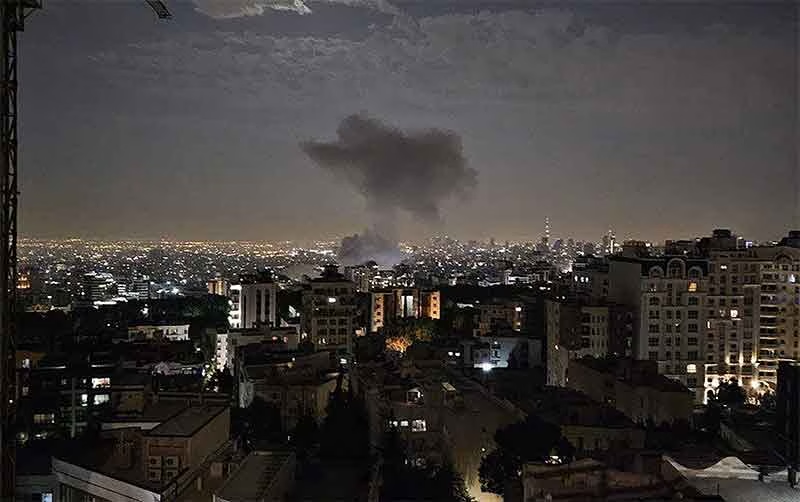
In a gathering if the most powerful person says the most absurd thing but says it in the loudest and most threatening way, then this voice may just succeed in suppressing other saner voices and becoming the focus of the entire gathering’s attention, at last for some time.
This rule of the crowd is sought to be imposed on the entire world in Trump’s unique style of working, the latest and perhaps the most important being the way in which the tariff and trade issue has been presented. In this presentation the country which in recent years and decades has tried, with its allies, to impose highly unfair trade terms and rules on the global south, also increasing the already excessive power of giant multinational companies to increase their dominance and profits at the expense of people including farmers in the global south, is shown to have been the victim of a huge rip-off by all the others. The perpetrator of injustices claiming instead to be the victim then gives a loud call to others to make up for this by agreeing to not just paying much higher tariffs, decided and imposed in highly arbitrary ways, with no room left for questioning calculations and fairness, but in addition agreeing to a lot more in terms of excessive and almost enforced imports from the USA, including import of hazardous products (such as GM foods) and acceptance of other conditions harmful for countries of the global south.
Despite the big changes supposed to be taking place in international trade, there is continuity from the point of view of the global south in the sense that they were being treated unfairly earlier too and they are being treated unfairly now too, the difference being that that now the harshness has increased and it is also more loud and crude. There is a bigger difference from the point of some leading European and other rich countries as they were earlier allies of the USA in imposing an unfair trade system on the global south, whereas now they too are facing some harsh treatment from the USA, at least for the time being.
In this context it is useful and interesting to recall some of the earlier discourse on international trade a very important component of which was that this should be fair to countries of the global south most of whom had earlier suffered so heavily during colonial times and certainly need fairer trade terms to emerge from the centuries or decades of heavy disadvantages and exploitation suffered by them. As this writer too was earlier a participant in some of the campaigns for fair and justice-based trade, he can assert from his experience relating to that there was fairly widespread support for this, even in some western countries and our campaigns widely used the literature produced by Oxfam and UN agencies which was supportive of justice for global South in the context of trade.
The UNDP Human Development Report (HDR) had brought out a special issue on international trade. This HDR particularly indicted those unfair trade policies that undermine the livelihood of small farmers. A big problem relates to huge agricultural and related subsidies in most rich countries. This report said, “Rich countries spend over $1 billion A YEAR as aid to developing country agriculture and just under $1 billion A DAY supporting their own agricultural systems.”
These heavy subsidies, this report pointed out, hurt rural communities in developing countries. “ Subsidized exports undercut them in global and local markets, driving down the proceeds received by farmers and the wages received by agricultural laborers. Meanwhile producers seeking access to industrial country markets have to scale some of the highest tariff peaks in the world.” Within rich countries the benefits go mostly to big businesses and bigger farmers. HDR concluded, “It would be hard to design a more regressive—or less efficient—system of financial transfers than currently provided through agricultural subsidies…Industrial countries are locked into a system that wastes money at home and destroys livelihoods.”
Further this report said, “When it comes to world agricultural trade, market success is determined not by comparative advantage but by comparative access to subsidies—an area in which producers in poor countries are unable to compete.”
At that time, as this report pointed out, cotton farmers in the USA received subsidy equal to the market value of the crop, enabling US big farmers and companies to dominate world market, while as a result of this, poverty in a country like Benin increased from 37% to 59%. Around the same time, rice grown in the USA at a cost of $415 a tonne was exported at $274 a tonne, with the result that in countries like Ghana and Haiti rice farmers were pushed out of their national markets. In the European Union, farmers and processors were paid four times the world market price for sugar, generating a 4 million tonne surplus, which was marketed with the help of huge subsidies given mainly to big processors, in turn resulting in ruin of farmers and small processors in some developing countries.
A study report by Oxfam titled ‘Rigged Rules and Double Standards’ revealed that in many cases the USA and the European Union were exporting at prices more than one-third lower than the costs of production, devastating small farmers in several developing countries.
Subscribe to Our Newsletter
Get the latest CounterCurrents updates delivered straight to your inbox.
Thus while the international trade system certainly needs reforms, the most important aspect of the reform must be to make this system more just and fair to the countries and people, particularly farmers, of the global south. However this aspect is not just completely ignored in the recent proposals and actions of Trump, but what he announced goes entirely in the opposite direction of the reform that is actually needed. The struggle and mobilization for creating a more just international trading system must therefore become much stronger.
Bharat Dogra is Honorary Convener, Campaign to Save Earth Now. His recent books include Planet in Peril, Earth without Borders, Man over Machine and A Day in 2071.














































